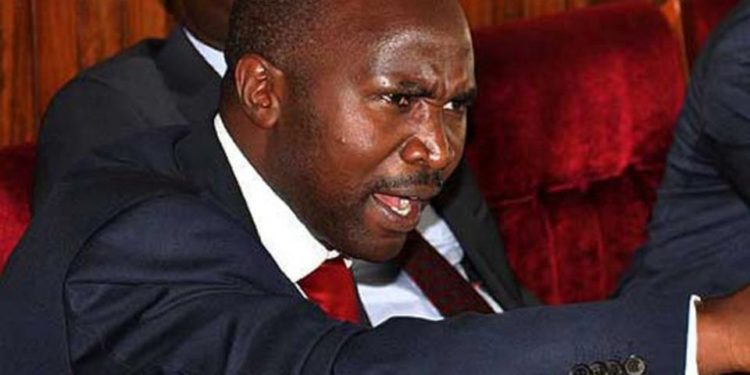The Ugandan government’s shameless sabotage of the censure motion against four Parliamentary commissioners has ignited fury among those who value democracy. Theodore Ssekikubo, MP for Lwemiyaga County, has unmasked the government’s devious tactics to derail a legitimate parliamentary process aimed at holding corrupt officials accountable. In a flagrant abuse of power, MPs ready to sign the censure motion were deceitfully sent on trips, deliberately obstructing the motion’s progress. This blatant interference casts a dark shadow over Uganda’s parliamentary system and the government’s hollow commitment to fighting corruption.
Central to this scandal is a motion to recall four commissioners embroiled in a Shs1.7 billion service award scandal. Despite facing formidable obstacles, including draconian directives from Government Chief Whip Damson Obua and the NRM caucus vice chairperson forbidding members from signing, Ssekikubo has valiantly gathered over 160 signatures. This demonstrates overwhelming support and undeniable merit.
However, the government’s underhanded tactics are nothing short of appalling. Ssekikubo exposed that some undecided MPs were slyly sent on trips to Nairobi, effectively preventing them from adding their signatures. This calculated move to neutralize potential signatories is a stark reminder of the government’s relentless efforts to protect corrupt officials.
The removal of Ssekikubo’s table and chairs, used for collecting signatures, by Parliament’s Sergeant at Arms, Ahmed Kagoye, further exemplifies the government’s desperate measures to stymie the motion. This petty yet symbolic act highlights the hostile environment for those seeking accountability. It is an egregious affront to democracy and transparency, raising serious concerns about the fairness of parliamentary proceedings.
In an interview, Ssekikubo expressed his frustration but remained resolute, emphasizing the broader context of his mission. He acknowledged the formidable opposition from the NRM majority but highlighted the significant progress made despite these challenges. The directives against signing and subsequent measures to keep MPs away underscore the government’s insidious interference. Yet, Ssekikubo’s unwavering determination underscores his commitment to the fight against corruption within Parliament.
The government’s actions beg the question: what are they so desperate to hide? If the motion lacked merit, there would be no need for such extreme measures. The deployment of these tactics suggests a deeper, more sinister agenda at play—one that prioritizes protecting corrupt officials over principles of accountability and good governance.
Critics argue that the MPs supporting the censure motion are engaging in political maneuvering. However, Ssekikubo’s assertion that this is a fight for transparency and accountability within Parliament is irrefutable. The service award scandal is not just a financial issue but a moral one. It sets a precedent that no one is above the law, especially those entrusted with public office. The removal of Ssekikubo’s table and chairs symbolizes the broader attempt to silence voices demanding accountability.
The implications of this controversy extend far beyond the immediate political landscape. It undermines the very fabric of Uganda’s democratic institutions. If MPs can be so easily manipulated and sidelined, what hope is there for genuine democratic processes? The government’s actions cast a long shadow over the integrity of Uganda’s parliamentary system, raising fundamental questions about its commitment to upholding democratic principles.
Moreover, the suggestion that MPs approved the service award without reading the fine print is laughable and insulting to the intelligence of both legislators and the public. If there were any evidence to support this claim, it would serve as the strongest argument in favor of the motion. The Parliamentary Commission, responsible for overseeing Parliament’s administration, must be held to the highest standards of transparency and accountability. Allowing such a significant expenditure without proper scrutiny is a gross dereliction of duty that cannot be overlooked.
Ssekikubo’s insistence on pursuing this motion, even if it means driving across regions to collect the remaining signatures, is a testament to his dedication to this cause. It is not just about one motion or a few signatures; it is about the broader fight against corruption and the integrity of Parliament as an institution. The battle for transparency must start from within, and the MPs’ role in this fight is crucial.







Discussion about this post